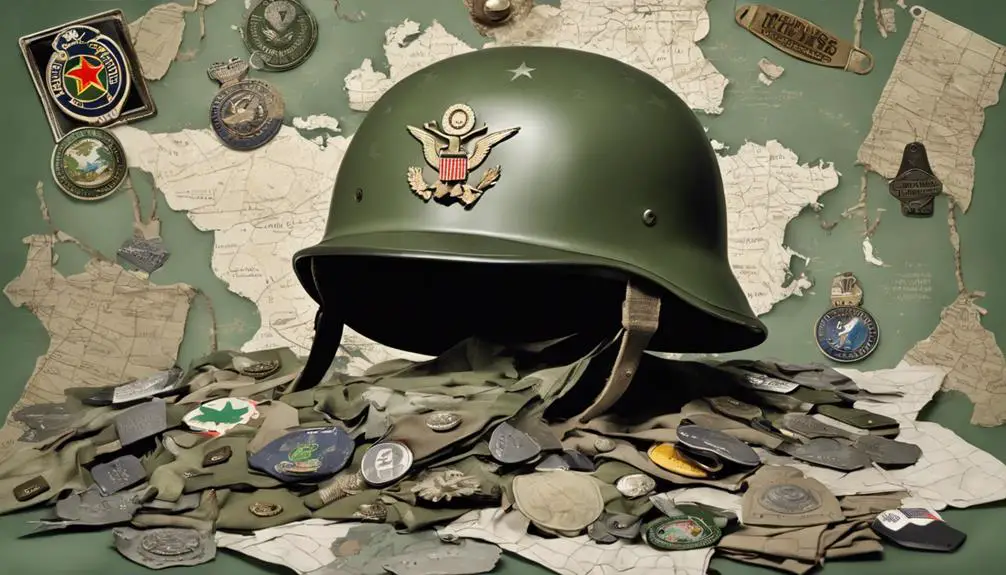You're about to explore the world of military slang, where terminology can be a matter of life and death. From general terms like 'rank' and 'CO' to battlefield lingo like 'H-Hour' and 'SITREP', understanding military slang is vital for effective communication. You'll learn about the different roles and hierarchy within the military, as well as the tactics and equipment used in operations. With a detailed glossary at your fingertips, you'll be able to navigate the intricate world of military communication. As you venture deeper, you'll uncover the nuances of military slang and its importance in fostering unit cohesion.
General Military Terms
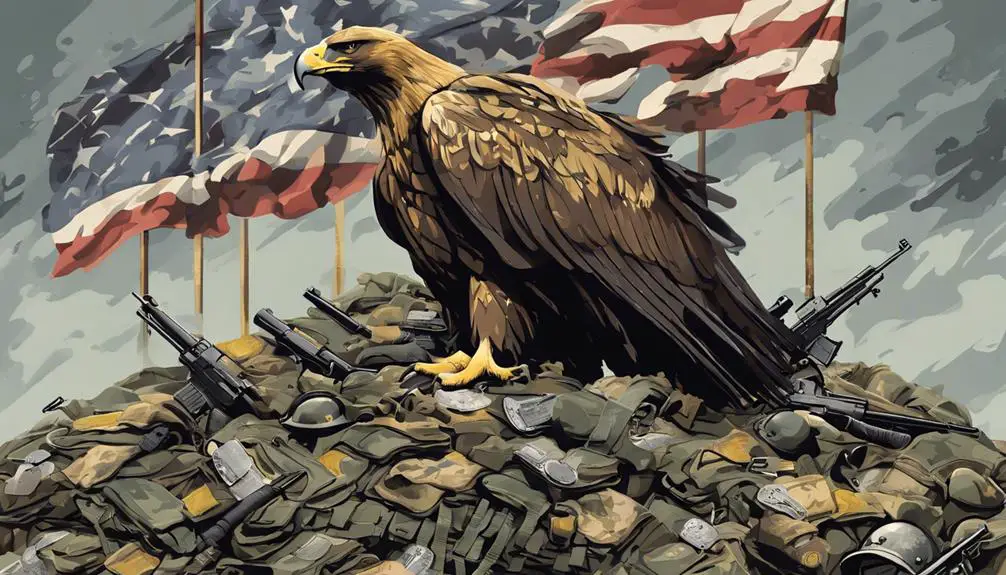
You'll frequently encounter general military terms that are used across different branches and specialties, providing a common language for communication among military personnel. These terms are rooted in military history, where they originated from the need for efficient communication in high-stress situations. Understanding these terms is essential for effective communication and respect for military etiquette.
In your interactions with military personnel, you'll hear terms like 'rank' referring to an individual's position within the military hierarchy, 'unit' describing a group of soldiers or a military organization, and 'deployment' meaning the movement of troops to a specific location. You'll also come across terms like 'CO' (Commanding Officer), 'NCO' (Non-Commissioned Officer), and 'ROE' (Rules of Engagement).
Familiarizing yourself with these general military terms will help you better understand military culture and show respect for military etiquette. It's essential to recognize that these terms aren't limited to a specific branch or specialty, but are widely used across the military. By learning these terms, you'll be able to communicate more effectively with military personnel and demonstrate your appreciation for their service.
Battlefield Lingo
As you explore from general military terms to battlefield lingo, you'll find that the language becomes more specialized and nuanced, reflecting the intense and dynamic nature of combat situations. Here, tactical jargon and combat cryptics reign supreme, allowing troops to convey complex information quickly and securely.
You'll hear phrases like 'H-Hour' (the designated time for an operation) and 'SITREP' (situation report), which provide critical context in high-pressure environments.
In this domain, brevity and clarity are paramount. You might hear 'Roger that' (message understood) or 'Over' (end of transmission), as soldiers rely on concise communication to stay ahead of the enemy.
Combat cryptics, like 'Sierra-Bravo' (SB, or situation report), become essential tools for conveying sensitive information without compromising security.
As you explore further into battlefield lingo, you'll discover a unique dialect that's both functional and fascinating. By mastering this specialized vocabulary, you'll gain a deeper understanding of the complex, high-stakes world of military operations.
Ranks and Roles
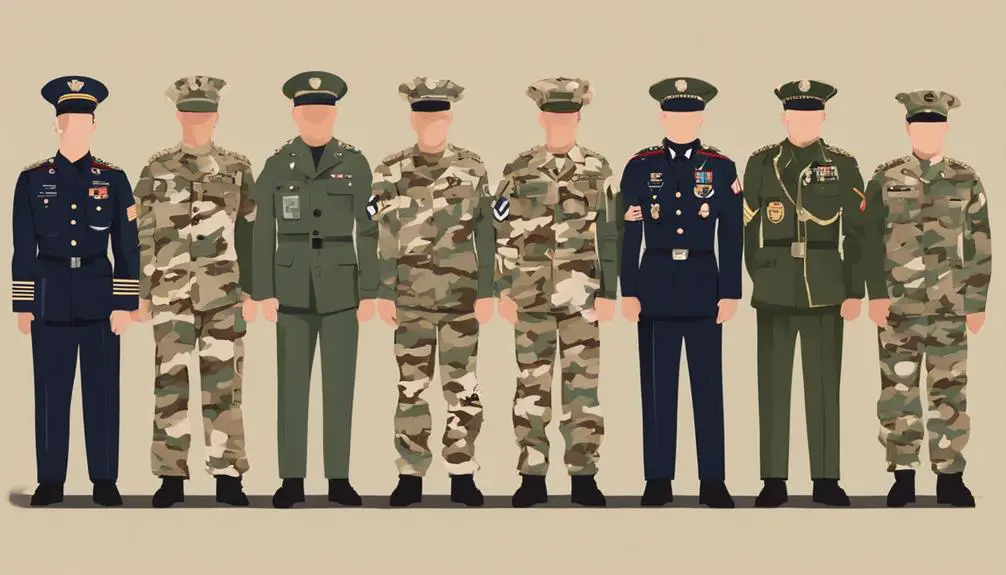
In the military hierarchy, ranks and roles define the chain of command, with each position bearing distinct responsibilities and expectations. As you navigate the military's organizational structure, understanding the different ranks and roles is essential.
Enlisted personnel, including privates, specialists, and sergeants, are the backbone of the military. They're responsible for carrying out day-to-day tasks and operations. You'll be expected to follow orders, maintain discipline, and adhere to Enlisted Expectations, such as respect for superiors and attention to detail.
Officers, on the other hand, hold leadership positions, making key decisions and overseeing operations. They're responsible for setting an example, leading by example, and upholding Officer Etiquette, including respect for subordinates and maintaining a professional demeanor.
As you progress through the ranks, you'll encounter various roles, such as non-commissioned officers (NCOs), warrant officers, and commissioned officers, each with their unique responsibilities and expectations. Understanding these roles and ranks is vital to effective communication, teamwork, and success in the military.
Military Operations
Effective military operations rely on coordination, communication, and strategic planning to achieve tactical objectives. You're part of a well-oiled machine, working together with your unit to accomplish the mission.
In the thick of it, you'll hear terms like 'Tactical Insertions' – that's when you're dropped into a hot zone via helicopter or parachute to secure a key location or gather intel. You might also be tasked with 'Covert Reconnaissance,' sneaking behind enemy lines to gather crucial information without being detected. These operations require precision, stealth, and speed.
You'll need to stay focused, adapt to changing circumstances, and trust your training to get the job done. Whether it's a high-stakes raid or a stealthy surveillance op, you'll be working together with your teammates to outmaneuver the enemy and achieve victory.
In the heat of battle, clear communication and a solid game plan are key to success.
Military Equipment
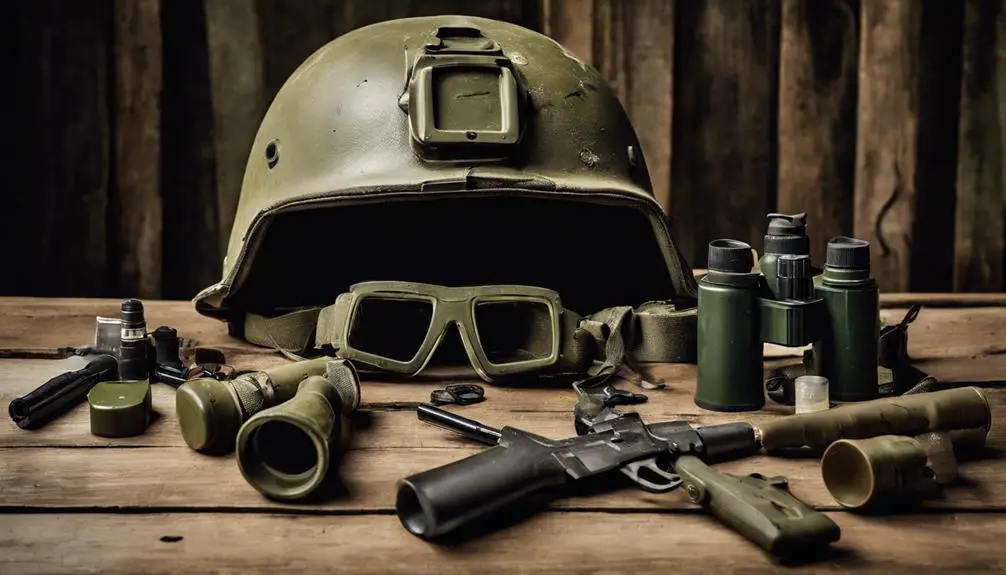
You rely on your gear to get the job done, and that means having the right Military Equipment to stay ahead of the enemy. Your equipment is an extension of yourself, and it's vital to have the best tools for the task at hand.
When it comes to Military Equipment, you need gear that can keep up with the demands of the battlefield.
Gear Upgrades are necessary to staying ahead of the curve. Whether it's upgrading your rifle scope or adding a new muzzle brake, every modification counts. Weapon Mods can make all the difference in a firefight, giving you the edge you need to take down the enemy. From scopes to silencers, every component is critical to your survival.
In the heat of battle, you don't have time to think about whether your gear is up to par. That's why it's important to have equipment that's reliable, durable, and adaptable.
With the right Military Equipment, you can focus on the mission at hand, knowing that your gear has got your back.
Communications Codes
Clear communication is essential on the battlefield, and that's where Communications Codes come in, providing a secure and efficient way to convey critical information. You'll often hear radio chatter filled with coded phrases, abbreviations, and acronyms that might sound like a foreign language to outsiders. But for military personnel, these codes are essential for conveying important information quickly and securely.
Cipher systems, like the ones used in encrypted messaging, guarantee that sensitive information remains confidential. You'll use these codes to report enemy positions, coordinate attacks, and request support. For instance, you might use 'Broken Arrow' to signal a friendly unit is under attack, or 'Medevac' to request medical evacuation.
In high-stress situations, every second counts, and Communications Codes help you convey complex information rapidly. By using standardized codes and ciphers, you can make sure that critical information reaches its intended recipient quickly and accurately.
Whether you're calling in artillery support or requesting air cover, Communications Codes are essential for effective communication on the battlefield.
Unit-Specific Slang
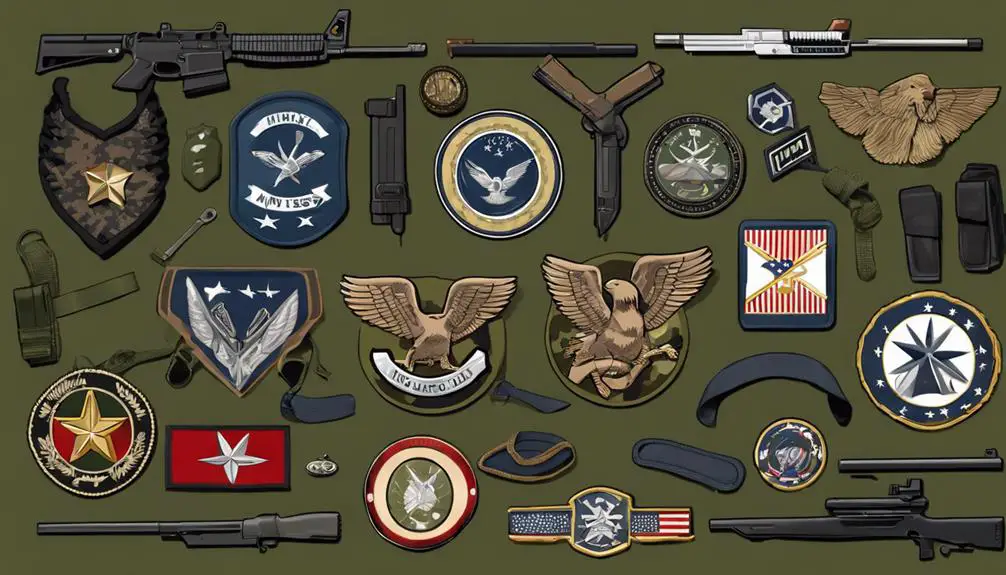
Each military unit develops its own unique slang, born from shared experiences, unit culture, and operational nuances. As you serve in a unit, you'll pick up on the specific lingo that's unique to your squad. You might find yourself referring to your squad as 'The Reapers' or 'The Wolves,' depending on your unit's nickname. These Squad Nicknames often reflect the unit's personality, values, or mission.
Within your platoon, you'll also develop a distinct vocabulary, known as Platoon Jargon. This can include specialized terminology, acronyms, or slang specific to your platoon's role or function. For instance, a platoon specializing in artillery might use terms like 'boomstick' for a howitzer or 'splash' for an artillery strike. You might also adopt colloquialisms that are unique to your platoon's culture, such as 'hammer time' for a high-intensity training exercise.
As you move between units, you'll notice that each one has its own distinct slang and jargon. By embracing this unit-specific language, you'll become an integral part of your unit's culture and identity. So, pay attention to the lingo around you, and soon you'll be speaking like a pro!
Frequently Asked Questions
Are Military Slang Terms Used by All Branches of the Military?
You might assume that military slang terms are universally used across all branches, but that's not entirely true. While there are some shared terms, each branch has its own unique slang, reflecting their distinct cultures and histories.
However, during joint operations, you'll often find that soldiers, sailors, airmen, and Marines adapt to a shared vocabulary, minimizing interbranch differences and ensuring seamless communication.
Do Military Slang Terms Change Over Time or Remain Constant?
As you explore the world of military slang, you'll find that terms don't remain static. They evolve over time, influenced by various evolution factors such as cultural shifts, technological advancements, and generational differences.
A historical analysis reveals that slang adapts to reflect the changing needs and experiences of military personnel. You'll notice how certain terms fall out of favor, while new ones emerge to take their place, keeping military slang dynamic and relevant.
Are Military Slang Terms Used in Formal Military Communications?
You might wonder if military slang terms make it into formal military communications. Typically, they don't. Formal language protocols dictate the tone for official communication channels.
You'll rarely, if ever, see slang terms in written reports, official briefings, or formal announcements. The military prioritizes clarity and precision, leaving slang for casual conversations among comrades.
Can Civilian Contractors Use Military Slang in Military Zones?
You're about to venture into a military zone as a civilian contractor – think of it as entering a secret society. Can you use military slang?
Well, imagine trying to blend in with a special ops team without the right cultural immersion – it's a recipe for disaster. Language barriers will arise, and security clearances won't save you from etiquette faux pas.
Stick to contractor protocol and avoid using military slang; it's not worth compromising zone etiquette or your reputation.
Are Military Slang Terms Universal Across Different Countries' Militaries?
As you explore military slang, you'll find that terms aren't universally accepted across different countries' militaries. Cross-cultural comparisons reveal that international dialects have distinct flavors.
What's common in one country's military might be unknown in another. For instance, the US military's 'HOOAH' (expression of enthusiasm) differs from the Canadian military's 'Huzzah' (celebratory cheer).
You'll need to familiarize yourself with each country's unique slang to effectively communicate with international military personnel.
Conclusion
You've got a handle on the military slang glossary, and now you're ready to deploy your newfound lingo in the field.
From 'HOOAH' to 'Roger that,' you're speaking the language of the brave.
Remember, in the military, clarity is key, and every word counts.
You've got the codebook, now use it to execute your mission with precision.
You're locked and loaded, ready to take on the toughest ops.
Go forth, soldier, and communicate like a pro!

